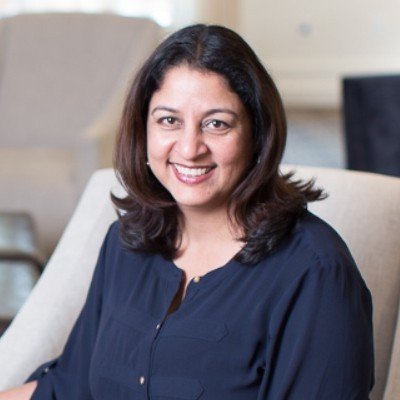The woman who turned her biggest setback into India’s biggest comeback story

At 21, when most people are figuring out their first jobs, Safeena Husain was walking into the London School of Economics. Not because she had it all figured out, but because she’d lost everything and found her way back.
Born in Delhi in 1971, Safeena’s education came to a grinding halt for three years due to poverty and violence at home. She felt like a failure. Her self-esteem hit rock bottom. But here’s the thing about rock bottom – it gives you a solid foundation to rebuild.
A family friend stepped in, gave her a home, and pushed her to get back to school. That one act of kindness didn’t just change Safeena’s life; it would eventually change the lives of 2 million girls across India.
Safeena Husain started over at 34
Fast-forward to 2005. Safeena was 34, living in San Francisco, running Child Family Health International. She had a successful career, a comfortable life. She could have stayed put. Instead, she came back to India and started Educate Girls in 2007 with 50 villages in Rajasthan.
Why does this matter for women over 30? Because Safeena proves that your thirties aren’t about settling. They’re about choosing your battles wisely.
The three P problem
Safeena Husain identified what she calls the “Three Ps” blocking girls’ education: Poverty, Patriarchy, and Policy. Simple framework, massive impact. She didn’t try to solve everything at once. She picked her lane and dominated it.
Her approach? Work with the system, not against it. Use local volunteers – 55,000 of them now – because change has to come from within communities. She built an AI algorithm to predict where out-of-school girls would be, cutting implementation time by 40%.
Smart, not harder.
The Numbers Don’t Lie
From 50 villages in 2007 to 25,000+ villages today. From 23,000 girls in 2013 to 2 million enrolled by 2025. Educate Girls became the first education NGO on India’s Social Stock Exchange, opening new funding streams.
In August 2025, she won the Ramon Magsaysay Award – Asia’s Nobel Prize. At 54, she’s hitting her stride.
Why This Matters for Women 30+
1. Your timeline is your own. Safeena started her life’s work at 36. She’s proving that your biggest achievements might be ahead of you, not behind you.
2. Experience is your superpower. Her years of poverty, abuse, and career building weren’t detours – they were training. Everything she went through prepared her for this mission.
3. Systems thinking beats passion projects. She didn’t just start another NGO. She built algorithms, created the world’s first Development Impact Bond in education, and changed how social organizations get funded.
4. Local beats global every time. Her 55,000 volunteers aren’t outsiders preaching. They’re community members creating change from within. She gave them voice, not instructions.
5. Scale comes from solving real problems. She didn’t chase trends. She solved the Three Ps systematically, village by village.
The Ripple Effect
Safeena Husain often talks about the ripple effect of educating one girl – how it lifts entire families and communities. But there’s another ripple effect here: showing women that reinvention doesn’t have an expiration date.
She’s married to filmmaker Hansal Mehta, but keeps her work separate. She acknowledges that “patriarchy stains us all” while building systems to wash it away. She’s writing a memoir about the journey.
At 54, she’s not slowing down. The goal is 10 million learners by 2035.
The Bottom Line
Safeena Husain didn’t wait for perfect conditions. She didn’t let age, timing, or circumstances stop her. She took her broken pieces and built something bigger than herself.
For women over 30 wondering if they’ve missed their shot: Safeena started at 36 and is changing the world at 54. Your time isn’t running out. It might just be starting.
Ready to chase your dreams? Find more inspiring stories of women who rewrote their lives at
https://workwellwomaniya.com/category/woman-of-the-week/
I bring these stories to you because every woman deserves to know her story isn’t over yet.
Check these stories:
